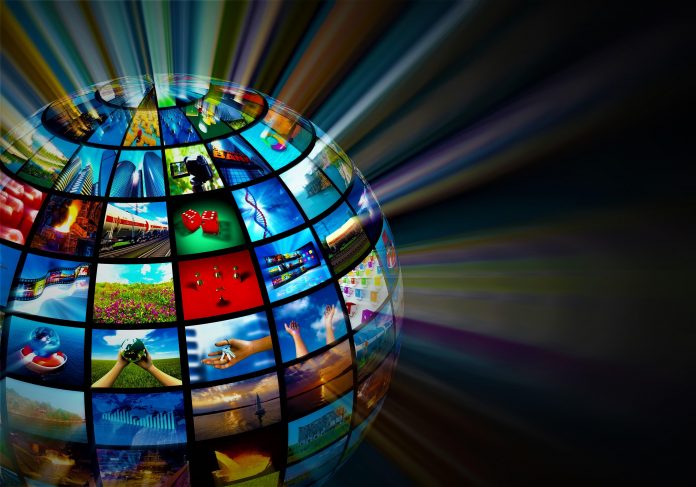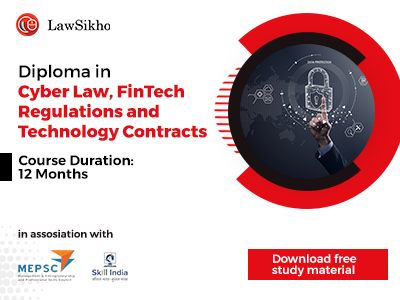This article is written by R Sai Gayatri from Post Graduate College of Law, Osmania University. This article deals with digital media and the legal challenges in it.
Table of Contents
Introduction
This is the internet era and India has witnessed a boom of internet users. The number of internet users in India increased from 302 million to 761 million in the past five years. A very informal but perfect example for this is that it was a herculean task to gain views on YouTube videos a few years ago but right now, it is just the matter of uploading a video and there are millions of eyes waiting to watch it and make the view count reach new records. Just as the internet/tech-savvy population has increased in India, the legal issues relating to the internet have also increased at an alarming rate. Every other day, we get to see some news regarding online breach of data, copyright issues, loss of data, a threat to the privacy of users and whatnot. Through this article let us know more about the legal challenges in digital media.
Digital media: Its meaning
Digital media is not just your conventional media that incorporates newspapers, radio broadcasts, magazines and television. It involves advanced digital aspects such as videos, audio, images, texts, graphics, etc. Digital media is deeply involved in our daily lives, for example, whenever we use mobiles, computers, or any applications we are using digital media, it can be disguised in the shape of music, podcasts, audiobooks, videos, advertisements, digital art or even in the form of an article.
Digital media has impacted our lives significantly. When you engage in any activity on your mobile, your computer, or on OTT platforms such as Netflix and Prime, you are said to be consuming digital media. It is safe to say that digital media is with us right from the time we wake up to the time we go back to sleep.
A clear-cut definition for digital media is hard to construct as the said medium is ever-evolving and taking new forms in sync with technological developments. However, it goes unsaid that digital media is only going to scale upwards in the future as we are depending more and more upon technology for almost everything. Embracing technology in the right way can reap various benefits for humankind and digital media is an example of that.
Kinds of digital media
Since we know that digital media is too wide a concept to be contained in just a little definition, we can at least try and understand its scope by understanding its presence in various forms:
Videos
There are billions of videos existing and billions being uploaded on the internet in the blink of an eye. Digital media transforms itself into visual digital media by the virtue of videos. It is a fact that a thing may be grasped better in visual form than in any other form and this is what digital media takes complete advantage of. For example, when it comes to the video industry YouTube and Netflix are amongst the most popular online platforms.
Fun fact
YouTube, which was established just a decade ago, has become such a huge deal in the visual market that more than 500 hours of videos are uploaded on it every single minute and over 5 billion videos are watched on the platform each day. This is just the beginning of trying to understand the scope and power of digital media.
Audio
Audio is just as popular as videos are in the present world, thanks to the varied forms in which it is available with the help of digital media. Earlier, a person had to wait for someone to request a song that he/she likes or for the radio jockey to play something according to the mood but right now it is all simplified into a process as easy as unlocking one’s device and playing their favourite tunes. Audio platforms such as Google Play, Apple Music and Spotify are a big hit in India as they serve the needs of music lovers in an instant, alternatively, they also provide podcasts, radio service, audiobooks, etc.
Endorsement
When it comes to digital media, advertisements are no exception. Marketing through digital media has become a trend at present, as it reaches the target audience or let’s call them the potential customers easily, and provides a wide range of marketing options. The skippable and unskippable advertisements, pop-up or banner advertisements are designed in such a way for each platform that they strike a fine balance between the user experience and the marketer’s needs. The days of going through the yellow pages of classifieds now seem to be history as a result of the advent of digital media.
Social media
Can you imagine being disconnected from social media these days? Seems impossible, right? Either knowingly or unknowingly we have all been entangled in the web of social media for some reason. For example, to give your opinion you have Twitter, to post your pictures you have Instagram, finding jobs becomes easier with LinkedIn, to connect with friends you have Facebook and so on. Each social media platform endorses some significant purpose of itself so that the public gets drawn to it. When you can stay connected with the people you care about with the ease of a few finger taps, why would you say no to such an opportunity? Digital media has paved the way for many such platforms. However, social media must be used with caution after all a bee is not supposed to drown in honey.
Literature
It is said that hobbies are hard to let go of and one of the most famous hobbies in the world is that of reading. Digital media has also tried to venture into this matter through the introduction of e-books, e-magazines, etc. to satisfy the needs of readers by combining technology. There are various platforms made available free or with a subscription for the readers to access millions of books, papers or magazines with the help of digital media. The e-books and VR have also proved to be helpful to the students as well since they provide much more information than the usual paperback books.
Legal issues concerning digital media
Digital media is a dynamic and evolving concept and it involves various situations where individuals, companies, designers and others are subjected to many risks often leading to legal conflicts. Let us know more about the challenges and laws involved in digital media.
Intellectual property rights and digital media
Intellectual property deals with the ownership of intangible goods. Such property comprises symbols, designs, writings, ideas and creations. Therefore, it also deals with digital media as it contains audio and video elements that can be downloaded from the internet. The following are some of the intellectual property rights that deal with digital media.
Copyrights and digital media
As per the copyright law in India, governed by the Copyright Act of 1957, the creators who produce musical, dramatic, artistic or literary works and the producers of sound recordings or cinemas have an exclusive right to protect their work known as copyrights. These rights may include the rights of adaptation, reproduction, communicating to the public and translation of the work of such a creator/producer. All these rights when clubbed together take the form of copyrights, however, the intensity at which these rights shall be applicable depends on the work of the creator/producer.
Coming to the world of digital media, there is a plethora of content that may or may not have been copyrighted by its owner. The concerning fact here is that irrespective of whether certain work is copyrighted or not, people still tend to lift the work of others. Digital media has opened a gateway for such offenders to infringe the copyrights of the actual owners of the work. For an owner to prove that his copyrights have been infringed, it must be established that he is the rightful owner of that particular work and the liability must be identified.
However, just making a few changes to the original work of an owner to come off as an original creator does not mean that the copyright infringement can be escaped. In the case of R.G Anand v M/S. Delux Films & Ors it was held that if a person produces literal imitation of the copyrighted work of some other person by merely adding few variations here and there as his own original work, it would amount to copyright infringement.
Trademarks and digital media
Due to the immense competition on digital media, various companies and businesses are creating trademarks for themselves in the online world. Digital media is seen as a customer-rich platform and as a result, the marketing agencies thrive to reach the right customer at the right time through the online medium. As important as it is to grow your business, it is equally important to protect it and one such way is to create a trademark for it. The trademark not only protects your business, it also increases brand recognition and goodwill. Digital media marketing though virtual comes very close to the customers which in turn increases the sales and profits of a company so it is important to be present on digital media to withstand the competition in the market. Accordingly, it is important to have created a trademark for your business, if you are planning to protect your brand value and goodwill from unauthorized persons. The trademark law in India is governed by the Trademarks Act of 1999.
In the case of Hearst Corporation v Dalal Street Communication Ltd., it was held that a trademark is said to be infringed when a person for the purpose of his business uses a mark that is deceptively similar or identical to the trademark of another company’s registered trademark. In the case of Zara Food v. Zara Fashion, a restaurant in Delhi was named after the renowned fashion brand. It was held by the court that any person would easily assume that the restaurant is a part of the Zara fashion brand. As a result, the restaurant had to change its name from Zara food to Tapas Bar. Similarly, in digital media, it is easy to lift domain names by making slight changes using certain characters. In order to avoid such trademark infringement on digital platforms, it is important to have a registered trademark.
Patents and digital media
A patent is an exclusive right permitted to a person for their invention. Such invention usually refers to a product or a procedure that facilitates a new method of doing something or a solution for a problem in technical terms. A patent grants protection to its owner for twenty years. Patents in India are governed by the Patents Act of 1970. Digital patents refer to parents dealing with computer-related inventions, mainly concerned with the methods involved in the usage of the software. In case, any person exercises the exclusive rights of the patent holder without prior permission from the patent holder then he shall be held liable for patent infringement. Patent Infringement is dealt with by Sections 104-114 of the Patents Act, 1970.
Hate speech
Like every coin has its two sides, digital media also has its pros and cons. While digital media allows freedom of expressing one’s opinions freely, it also poses certain risks such as the spread of hatred. Hate speech refers to those words, either spoken or written, gestures or other such visible representations expressed with the intent to incite violence or cause fear amongst other people in the surrounding. It also includes discrimination on basis of gender, caste, religion, etc. Hate speeches can take the form of offensive or derogatory comments/posts, videos and images portraying violence aiming to provoke a response, online trolling, threats and so on.
Due to such a wide presence of digital media, anyone just by merely having access to the internet can post such hate speech or spread hatred in any manner and on any platform. Although sometimes these remarks of hatred are subtle, they also have the possibility of taking an ugly turn leading to serious legal issues. For example, the never-ending trolling culture on social media. However, most of the platforms on digital media now have the option to report such hate speeches.
This helps to reduce the rate of online abuse and trolling. Though reporting an issue might seem to be insignificant in the beginning, it is the key to stop online abuse of any kind. Hate speeches are not protected under Article 19(1)(a) that talks about freedom of speech and expression. However, these hate speeches are penalized under the Indian Penal Code, 1860 and the Information Technology Act, 2000. Stringent laws must be enacted to stop the spread of hatred but it must also be ensured that democracy does not turn into a dictatorship.
Defamation
Digital media provides various platforms for a person to express his views and opinions openly on the internet. However, this medium is also used for the purpose of passing defamatory statements against someone that results in injury to his reputation. As per Section 499 of the Indian Penal Code, 1860, the act of a person who by words either spoken or written or by signs or any other visual representations states or publishes any matter regarding any person with an intention to injure, or knowing or having a reason to believe that such statement or publication will injure the reputation of such person is said to commit the offence of defamation against such a person. A statement must be false and cause injury to the reputation of a person for it to be rendered as a defamatory statement.
Due to the abundant and easy availability of information on digital media, it becomes easy to fabricate and create fake facts about certain people, not to forget the massive creation of fake accounts for the purpose of passing defamatory statements. Therefore, it becomes even more difficult to track down each offender in this matter. For the purpose of gaining high TRPs, even the media encourages such baseless assumptions and opinions which does not harm the offenders but affects the lives of the targeted persons significantly. Thus, defamation is a serious legal issue relating to digital media.
The punishment for defamation as per Section 500 of the Indian Penal Code, 1860 is simple imprisonment extending to two years or fine or both. In the case of Rajiv Dinesh Gadkari v. Smt. Nilangi Rajiv Gadkari, the respondent filed a suit against her husband after receiving a divorce letter from him for repeatedly harassing and defaming her through obscene photographs. The offence of defamation has been registered accordingly.
Privacy invasion
Privacy is one of the most treasured elements in the online world. No one wants their personal matters to be endorsed as some sort of ridicule or judgement stock. There is a limit to what a person wants to share about himself with others and such a limit is unique to each person. No one can be forced to share any information against their consent. It often happens that we see advertisements related to the things that we search on the internet. This happens due to cookies and IP addresses. Cookies are those text files that track and store information that a person has browsed on his device and an IP address provides the location of a person.
Most online advertisers tactfully receive information about people through cookies and IP addresses. Many platforms on digital media try to collect user data without the consent of the user for their benefit. This is called the invasion of one’s privacy, in simple words, it is taking away one’s personal information (which they would prefer not to share) without his consent and using it for business or other such purposes. In some cases, such information is also used to target a person and gain unlawful benefits.
It is the right of every person to claim privacy in certain matters. The Supreme Court of India ruled that the right to privacy is a fundamental right and is an intrinsic part of Article 21 of the Indian Constitution. Therefore, any privacy breach caused to a person can be challenged in a court of law. Digital media must not be considered as a means to invade the privacy of people and unlawfully gather information from databases.
In February 2021, WhatsApp updated its privacy policy and asked its users to accept the updated policy in order to continue using the app. It stated that the said update is for enhancing data security and privacy. Although WhatsApp has been sharing user data with its parent company i.e, Facebook for a long time, it recently accepted this fact openly resulting in a massive backlash from its users.
Many users even shifted from WhatsApp to rival messaging platforms such as Telegram and Signal. WhatsApp quickly responded to the concerns of its users by stating that the said update does not increase its ability to share data with Facebook and that WhatsApp does not have the access to see the shared location of its users. It further clarified that no contacts of its users are shared with Facebook. It has extended the deadline for accepting the update until May 15th 2021, post which its users will lose access to the app.
Ways to reduce the negative impact of digital media
Digital media may also take ugly turns in certain situations. It seems impossible to live without the internet these days. The over-dependence and excessive usage of digital media lead to negative impacts on the cognitive and behavioural development of humans. It also affects the mental health of people by causing depression, social anxiety, envy, and so on.
Few methods to combat the negative impact of digital media are- restricting the usage of digital media, using digital media mindfully, going on digital detox frequently, controlling the privacy and security permissions, reporting the misuse of digital media, and using software-based solutions that limit access to digital media.
Conclusion
Legal challenges pertaining to digital media are not just limited to the above-mentioned ones. Every other day some new form of breach or infringement is caused as the nature of digital media is evolving and dynamic. In the present world, it is next to impossible to stay away from digital media because it is prevalent everywhere on the internet. Therefore, the laws dealing with digital media must be up-to-date so that they are capable enough to determine the legal issues, their outcomes and provide solutions accordingly.
References
- http://thecdm.ca/program/digital-media
- https://legislative.gov.in/sites/default/files/A1860-45.pdf
- https://www.indiacode.nic.in/bitstream/123456789/1999/3/A2000-21.pdf
- http://www.dmlp.org/legal-guide/legal-issues-consider-when-getting-online
LawSikho has created a telegram group for exchanging legal knowledge, referrals, and various opportunities. You can click on this link and join:
 Serato DJ Crack 2025Serato DJ PRO Crack
Serato DJ Crack 2025Serato DJ PRO Crack











 Allow notifications
Allow notifications


